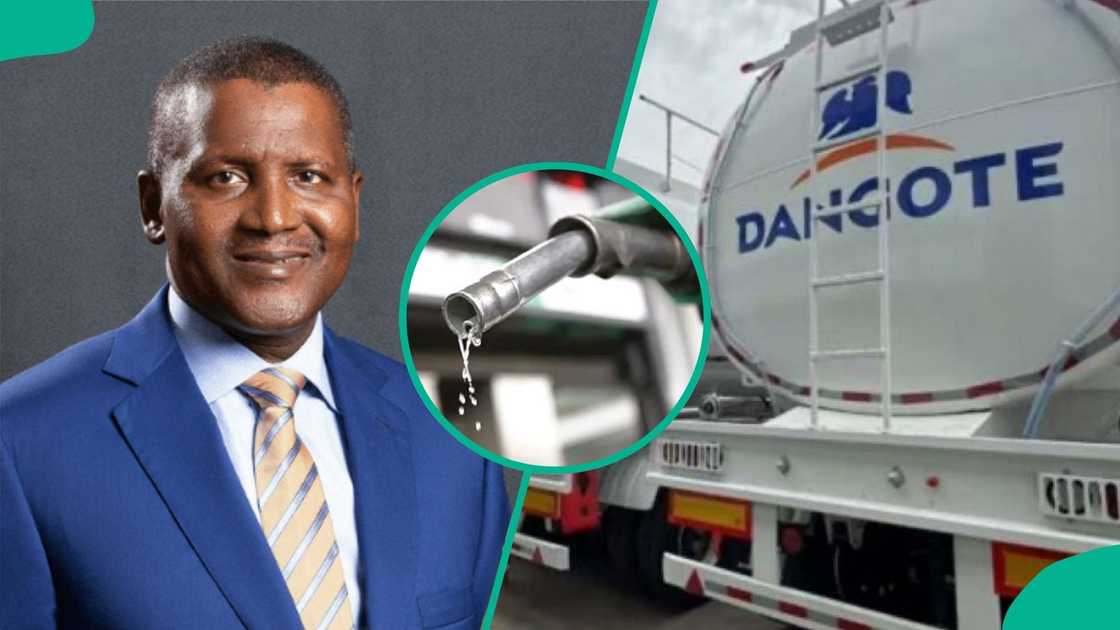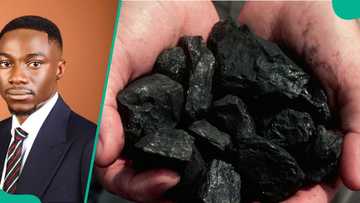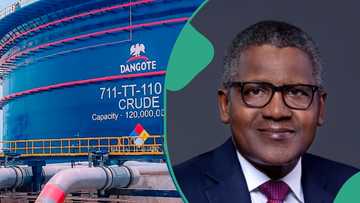Nigeria Becomes Fuel Exporter as Dangote Supplies Diesel, Jet Fuel Across Africa
- The Dangote Refinery has ended Nigeria’s reliance on imported fuel by producing diesel, petrol, and jet fuel for both local use and export
- Since beginning operations, it has reduced Nigeria’s fuel imports, saving the country billions in foreign exchange
- The refinery now supplies much of West and Central Africa and has entered global markets, exporting to countries such as the US
Legit.ng journalist Victor Enengedi has over a decade's experience covering Energy, MSMEs, Technology, Banking and the Economy.
The Dangote Petroleum Refinery has become a game-changer for fuel supply in West and Central Africa, ending years of heavy reliance on imported petroleum products.

Source: UGC
With a massive capacity of 650,000 barrels per day, the refinery has quickly positioned itself as a key player in Nigeria’s oil industry, which for decades lacked an efficient local refinery.
Today, it produces large amounts of diesel, gasoil, and jet fuel, meeting Nigeria’s needs and also exporting to neighbouring African countries.
According to Gary Clark of S&P Global Commodity Insights, the refinery now has the ability to supply enough diesel and aviation fuel for the region.
Since it began operations last year, it has shipped significant volumes of fuel across West and Central Africa, reducing the region’s dependence on imports from Europe.
Clark said:
"With the Dangote refinery coming online, we see a lot of gasoil or diesel and jet fuel exported from that refinery, meeting West African and Central African demands.
"More than enough jet fuel has been exported to supply both the region and also more far-flung destinations as well."
This shift has provided West Africa with a more reliable and stable fuel supply, protecting countries from global price fluctuations and easing pressure on governments and businesses.
Dangote now West Africa’s key fuel supplier
Between June and July 2025, the refinery exported approximately one million tonnes of petrol, marking Nigeria's first time as a net exporter of refined products.
As a result, Nigeria’s fuel imports fell sharply, from 500,000 barrels per day in early 2023 to just 88,000 in early 2025, while South Africa has now become Africa’s biggest petrol importer.
According to a CITAC report, Nigeria is expected to import only 6.4 million tonnes of fuel in 2025, compared to South Africa’s 15.5 million tonnes.
The refinery also boosted crude oil processing in sub-Saharan Africa, accounting for most of a 77.8% increase recorded in 2024.
Currently producing about 550,000 barrels per day and meeting 60% of Nigeria’s petrol demand, the refinery could save the country up to $10 billion in foreign exchange this year.
It has also drastically cut Nigeria’s dependence on imported jet fuel, reducing daily imports from 13,000 barrels to just 5,000.
Exports have expanded to countries such as Senegal, Togo, Benin, and Gabon, while also reaching global markets.
In early 2025, the U.S. bought 1.7 million barrels of jet fuel from Dangote in just one month, and Saudi Aramco purchased 130 million litres, signalling Africa’s rising importance in global fuel trade.

Source: Getty Images
FG, marketers talk stalls Dangote fuel distribution plan
In related news, Legit.ng earlier reported that talks between the Nigerian government and marketers halted the Dangote nationwide fuel distribution plan.
The discussion, which was called at the instance of the Nigerian Midstream and Downstream Regulatory Authority, was to discuss the fallout of the plan.
The Dangote Refinery reportedly received 1,000 out of the expected 4,000 CNG-powered trucks.
Source: Legit.ng





